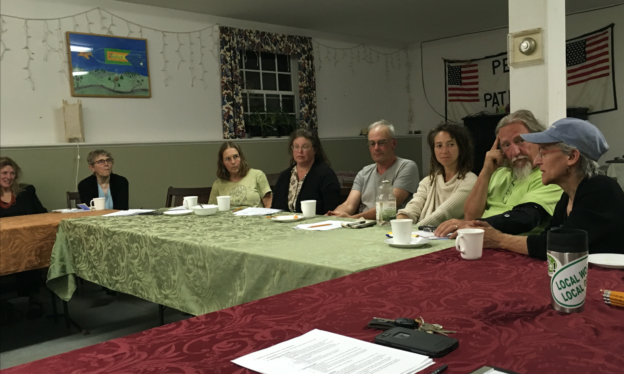Back to all Research Results
Social Research
Research Question: How does urine reclamation change our cultural, political, economic, and ecological relationships?
Dates: 2014-present

Re-thinking how we use our human “waste” involves social and cultural transformation as well as technical innovation. To better understand the experiences, concerns and ideas emerging from everyone involved (and that’s everyone!), we conduct interviews, listening sessions and dialogue groups with farmers, legislators, environmental advocates, planners, waste-water treatment system operators, soil scientists, agricultural educators, fertilizer industry professionals and members of the “general public.” This research guides us as we develop educational materials and methods to overcome perceived stigma (so far we’ve found there is less than you might think), and informs our technical team as we research the most effective methods to divert urine from the waste stream and provide a product that farmers and consumers value and trust. Over time, we are also documenting the experiences and changes of behavior and attitudes among participants in our urine nutrient reclamation project in Brattleboro and other “early adopters” of urine recycling.
Read about our social research in some of our recent publications:
Nested risks and responsibilities: Perspectives on fertilizer from human urine in two U.S. regions
Leveraging integrative research for inclusive innovation: urine diversion and re-use in agriculture
Practical Strategies for Reducing Ammonia Volatilization from Urine-Derived Fertilizers

